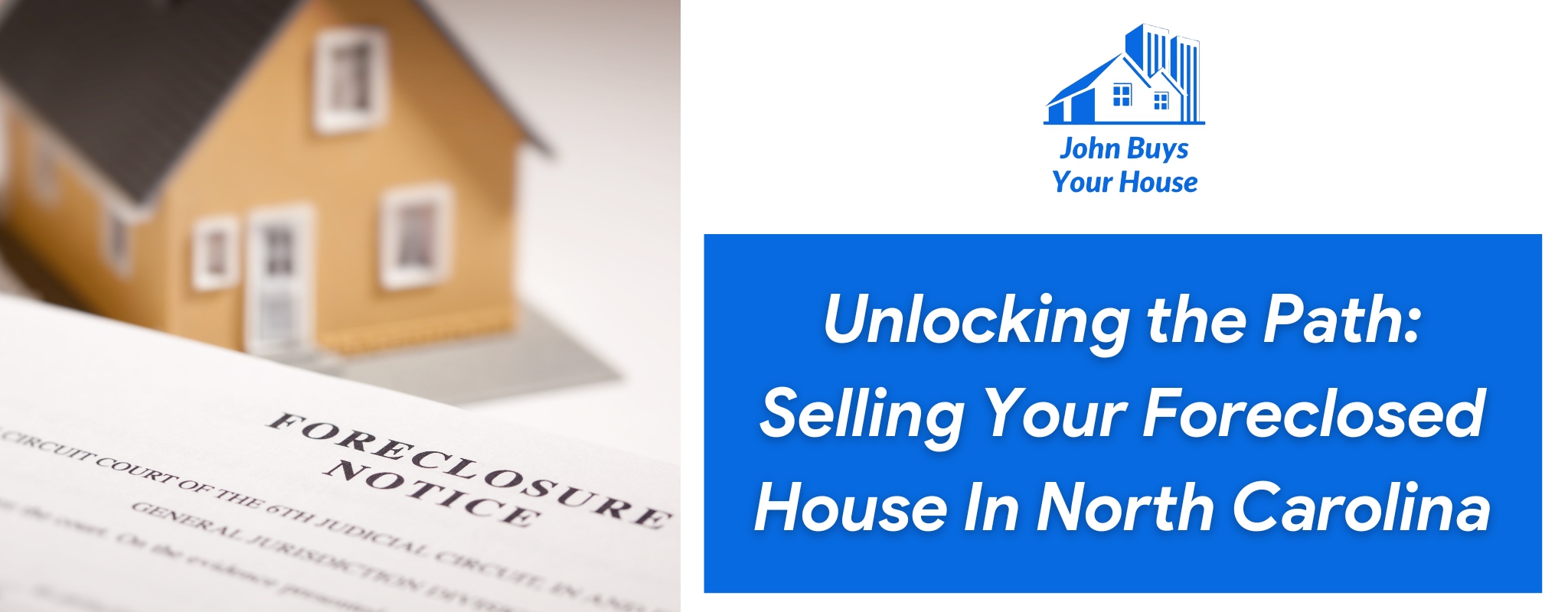
Understanding Foreclosure: A Guide For North Carolina Residents
For those in North Carolina facing default on their home, it is important to know how the state’s real estate market works. Foreclosure is the formal process by which a lender can take back a home whose owner has stopped paying their mortgage.
The courts mostly handle foreclosures in North Carolina, which can take anywhere from 60 days to more than a year. It is very important to know the exact foreclosure rules and steps in North Carolina, as they may differ from those in other states.
For example, you should know about loan modifications, short sales, and deeds in lieu of default. By learning about the ins and outs of North Carolina foreclosure, you can better handle this tough situation and make smart choices about whether to sell your home.
TABLE OF CONTENTS
- The Timeline Of Foreclosure In North Carolina: What You Need To Know
- Selling A Home In Foreclosure? Here’s What You Need To Know In North Carolina
- Avoiding Foreclosure: How To Sell Your Home Before It’s Too Late In North Carolina
- Challenges And Obstacles When Selling A Home In Foreclosure In North Carolina
- Can You Really Sell A House While Undergoing Foreclosure? The Truth About North Carolina Laws
- Exploring Options: Traditional VS Alternative Ways To Sell Your Foreclosed Home In North Carolina
- How Much Time Do You Have To Sell Your Home Before Losing It To Foreclosure? Understanding The Legalities In North Carolina
- Finding The Right Buyer For Your Foreclosed Home: Marketing Strategies That Work
- Negotiating With Lenders: How To Get The Best Deal When Selling A House In Foreclosure
- Understanding The Role Of Real Estate Agents When Selling A House In Foreclosure In North Carolina
- Getting Your Finances Straight: Tips For Preparing For The Sale Of Your Foreclosed Home
- Applying For Short Sales Or Deed-in-lieu: Alternatives To Consider Before Selling A House In Foreclosure
- The Emotional Toll Of Losing Your Home To Foreclosure: Tips For Coping And Moving On
- Seeking Legal Advice: When To Consult With A Foreclosure Attorney In North Carolina
- How Do Foreclosures Work In North Carolina?
- How Do I Get Out Of Foreclosure In NC?
- How Can I Buy A Foreclosed Home In NC?
- What Happens After Foreclosure Sale In NC?
The Timeline Of Foreclosure In North Carolina: What You Need To Know
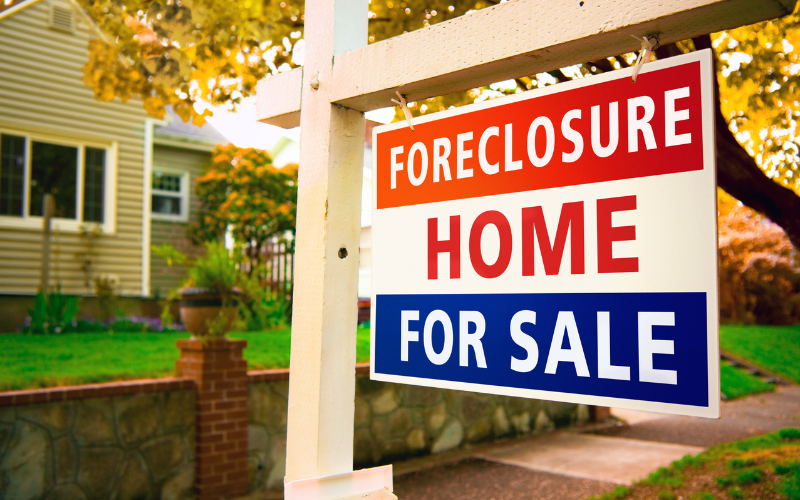
If you’re facing foreclosure on your North Carolina home, it’s crucial to understand the timeline of the process. In North Carolina, the foreclosure process typically begins when a homeowner misses three consecutive mortgage payments.
After this, the lender will send a notice of default, giving the homeowner 45 days to catch up on missed payments. If the homeowner cannot do so, a notice of sale will be issued, and the property will be scheduled for auction within 25-35 days.
The sale can be delayed if the homeowner files for bankruptcy or requests mediation with their lender. However, if no solution is reached, the property will be auctioned, and any remaining debt will become the homeowner’s responsibility.
It’s important to act quickly and seek help from a real estate professional if you’re facing foreclosure in North Carolina.
Selling A Home In Foreclosure? Here’s What You Need To Know In North Carolina
It’s important to know how long the eviction process takes if you live in North Carolina and are facing it. In North Carolina, a homeowner usually goes through default when they miss three mortgage payments in a row.
The lender will then send a default letter, giving the homeowner 45 days to make up any late payments. If the homeowner can’t do it, a notice of sale will be sent out, and within 25 to 35 days, the house will be put up for auction.
The sale can be put off if the homeowner files for bankruptcy or asks for a settlement with their lender. But if no agreement is made, the house will be sold at auction, and the owner will have to pay off any debts that are still outstanding.
If you live in North Carolina and are facing foreclosure, you must move quickly and get help from a real estate agent.
Avoiding Foreclosure: How To Sell Your Home Before It’s Too Late In North Carolina
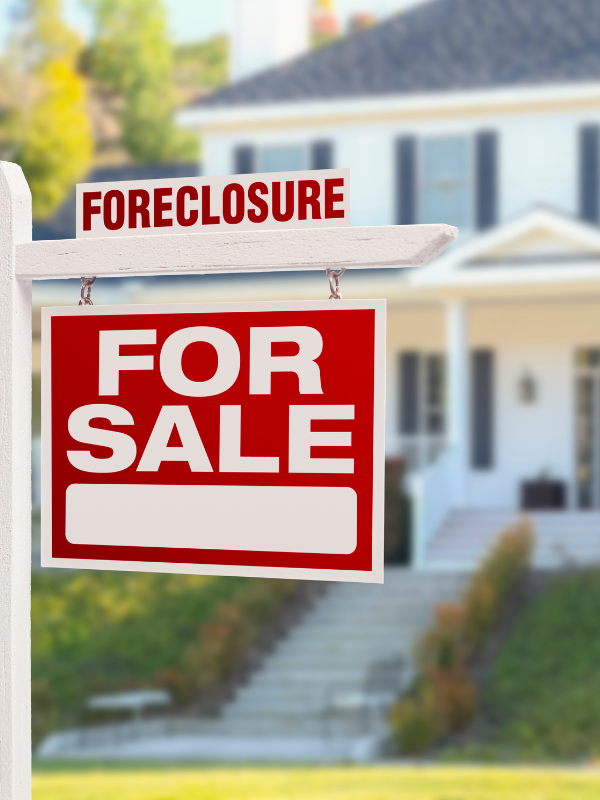
If you own a home in North Carolina and face default, you should know how the state’s real estate market works. It might seem hard to sell a house that is in foreclosure, but it’s not impossible.
There are things you can do to sell your house before it’s too late and keep it from going into foreclosure. First, consider hiring a real estate agent with a good reputation and knowledge in the North Carolina market.
They can help you set a fair price for your house and determine the best time to sell. Also, sell your home actively and make any repairs or updates needed to make it more appealing to potential buyers.
Also, making your mortgage payments on time is important and working with your lender to find other options. By following these steps, you can sell your home and keep it from going into debt in North Carolina.
Challenges And Obstacles When Selling A Home In Foreclosure In North Carolina
It can be hard to sell a house that has been taken back by the bank, especially in North Carolina’s real estate market. One of the hardest things for landlords is that they only have a short time to sell their home before foreclosure.
It can also be hard and take a lot of time to sell a foreclosed home because you have to negotiate with lenders and possible buyers. It can also be hard to get a good price for the property and attract buyers because the market is competitive.
Some certain laws and rules must be followed when selling a foreclosed home in North Carolina, which makes the process even more complicated. Homeowners may find it hard to sell their property before it goes into foreclosure because of these problems and issues.
Can You Really Sell A House While Undergoing Foreclosure? The Truth About North Carolina Laws

If you are facing that, you may wonder if selling your North Carolina home before it goes into debt is possible. It is possible to sell a house in North Carolina that is in foreclosure, though it is not simple.
But some rules and laws must be followed. In North Carolina, the foreclosure process can last between 60 and 90 days. This gives homeowners a chance to sell their homes before it goes into default.
It’s important to remember that any sale made during this time must still cover the mortgage amount and any fees that come with it. North Carolina also has strict rules that require sellers to tell potential buyers about any liens or other problems with the property.
Exploring Options: Traditional VS Alternative Ways To Sell Your Foreclosed Home In North Carolina
North Carolina homeowners needing to sell a foreclosed home have a few choices. In the old-fashioned way, you use a real estate agent to put the house on the market and wait for someone to make an offer.
This can take a long time and be risky, though, especially in a market as competitive as North Carolina’s. Homeowners can also look into other choices, like selling their foreclosed home to an investor or through a short sale.
These methods might get you results faster and for sure, but they often come with problems and possible downsides. On the real estate market in North Carolina, people who want to sell a foreclosed home should carefully consider their choices and talk to real estate professionals.
How Much Time Do You Have To Sell Your Home Before Losing It To Foreclosure? Understanding The Legalities In North Carolina
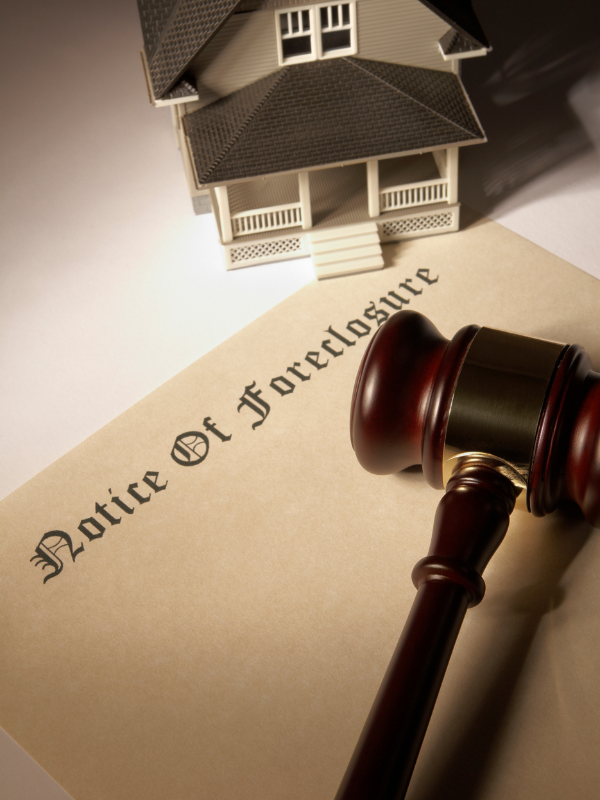
Now is the most important time to sell a foreclosed home in North Carolina’s real estate market. The state has strict rules and laws about foreclosures, so people who own homes must act quickly to keep them.
In North Carolina, the process of foreclosure usually takes 45 days. This means renters have little time to sell their homes before the lender takes them back. However, formal steps must be taken before a foreclosure can happen. For example, the homeowner must be given notice and time to make up any missed payments.
People whose homes are in danger of foreclosure need to know about these laws and get help from a professional to ensure they have time to sell their houses before it’s too late.
Finding The Right Buyer For Your Foreclosed Home: Marketing Strategies That Work
Finding the right buyer for your North Carolina foreclosed home can be one of the hardest. Because of how different a foreclosure home is and how competitive the real estate market is in North Carolina, it’s important to have good marketing plans to get people interested in buying.
Using the Internet to show off your home’s features and reach more people, like on real estate websites and social media sites, can be helpful. You can also get more people to see your property by holding open houses and working with a reliable real estate agent specializing in foreclosures.
Using these marketing tactics, you can improve your chances of selling your foreclosed home in North Carolina’s real estate market.
Negotiating With Lenders: How To Get The Best Deal When Selling A House In Foreclosure

Talking to the lenders is one of the most important things to do when selling a foreclosed home. In the real estate market in North Carolina, there are some things you can do to get the best deal.
The first thing that you should do is be open and honest with your lender about your position. This will help them understand your situation, which could make them more willing to talk.
You may also be successful if you gather all the necessary proof and make a strong case. You might also want help from a real estate agent or lawyer who has previously dealt with foreclosure sales.
These professionals like John Buys Your House can help you get the best deal when you sell your foreclosed home because they know how to negotiate and can do it quickly.
Understanding The Role Of Real Estate Agents When Selling A House In Foreclosure In North Carolina
To sell a North Carolina foreclosed home, you must know what a real estate agent does. These professionals know a lot about the state’s real estate market and have a lot of experience with it. This makes them very helpful for homes that are facing foreclosure.
They can help you decide on prices, marketing plans, and how to talk to possible buyers. Real estate agents can also help speed up the sale process by connecting you with many possible buyers.
They also know the legal requirements and steps for selling a foreclosed home, so they can ensure that all the necessary steps are taken to avoid any problems or delays. For people in North Carolina who want to sell their foreclosed home, working with an experienced real estate agent can be very helpful.
Getting Your Finances Straight: Tips For Preparing For The Sale Of Your Foreclosed Home

If you are trying to sell a North Carolina condemned home, you should ensure you have enough money saved up before putting the house on the market. This can help create an easier and more successful sales process.
One important tip is to get all your important financial papers together, like mortgage statements, tax returns, and foreclosure notices. This will help you understand your financial situation better. Also, it’s important to be open and honest about any debts or liens still due on the property.
You might also want to talk to a financial expert or a real estate agent specializing in foreclosures to help you set a fair price for your home and negotiate with buyers. In North Carolina’s real estate market, your chances of selling your foreclosed home are much better if you have enough money saved up.
Applying For Short Sales Or Deed-in-lieu: Alternatives To Consider Before Selling A House In Foreclosure
You should know all of your choices before you decide to sell a North Carolina foreclosed home. It can be scary and stressful to sell a house in foreclosure, but there are some other options you might want to consider before going through with the sale.
One option is to try to get a short sale, which means selling the house for less than what is still owed on the mortgage. Another choice is a deed-in-lieu, in which the homeowner gives the lender back ownership of the home in exchange for forgiving any leftover debts.
Both options have pros and cons, so learning as much as possible about them is important before choosing. If you choose one of these choices, you might be able to avoid the bad effects of having a foreclosure on your credit report and move on from this tough situation.
The Emotional Toll Of Losing Your Home To Foreclosure: Tips For Coping And Moving On
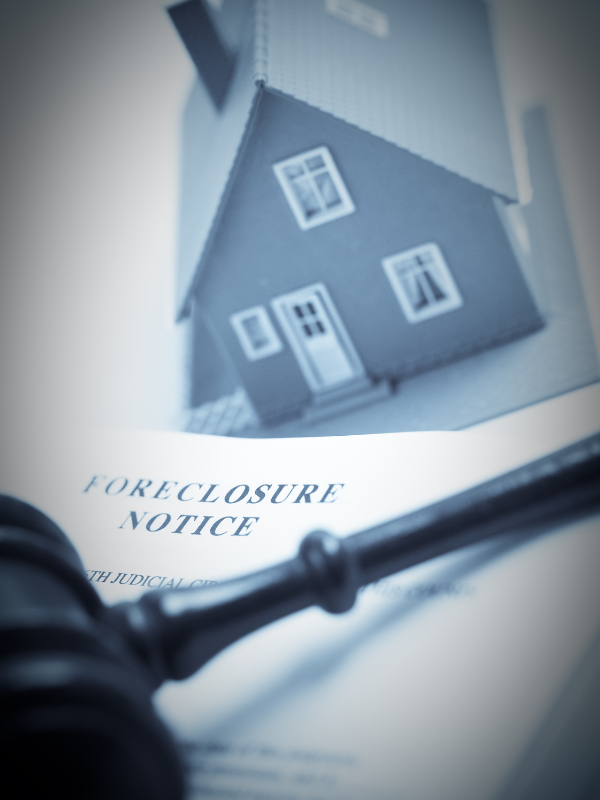
It can be hard on your emotions to lose a home to foreclosure, especially in North Carolina, where the real estate market is tough. Giving up your beloved home and having to deal with money problems can cause a lot of stress and worry.
But remember that you are not the only one going through this. Many other people have been through the same thing and can handle the problems with default.
Finding good ways to deal with your feelings and stay positive during this tough time. Getting help from family and friends, learning about the foreclosure process, and looking into other choices can all make losing your home to foreclosure less stressful.
By being strong and determined, you can get through this tough time and find a new place to live.
Seeking Legal Advice: When To Consult With A Foreclosure Attorney In North Carolina
It can be hard to figure out how to sell a house that the bank has taken back, especially in North Carolina’s real estate market. If you are a homeowner who might lose your home to foreclosure, you should know the legal effects and possible outcomes of this process.
Talking to a North Carolina repossession lawyer can be very helpful in this situation. They have a lot of experience and understanding in this area of law, so they can help you through the process and protect your rights as a homeowner.
If you are thinking about a short sale, loan modification, or any other choice, talking to a good lawyer can help you make the right decision and give you peace of mind during this stressful time. It’s always better to be well-informed and ready than to be caught off guard by problems by yourself.
How Do Foreclosures Work In North Carolina?
To sell a foreclosed home in North Carolina, you need to know everything there is to know about the real estate market. The courts handle foreclosures in this state, so they have to go through the system.
When someone doesn’t make their mortgage payments on time, the lender can go to court and start the default process. That’s when the homeowner has a certain amount of time to act and maybe save their house.
The house will be auctioned off to the public if they can’t keep it. If no one bids on the property, it will be owned by the bank and can be put on the regular real estate market to be sold.
To get through the complicated foreclosure process successfully, buyers and sellers must talk to real estate agents in North Carolina with a lot of experience.
How Do I Get Out Of Foreclosure In NC?
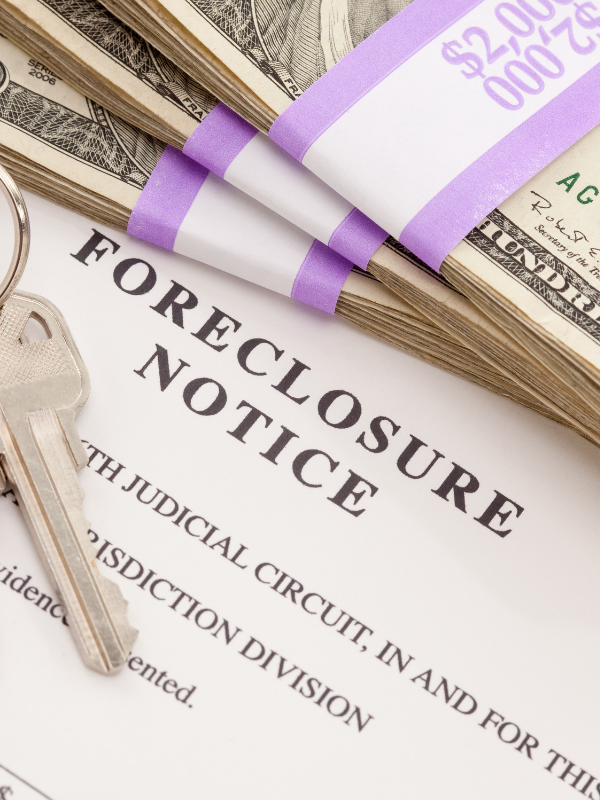
For people in North Carolina, foreclosure can be stressful and difficult. You can sell your house before it’s too late and avoid foreclosure, though.
You could work with a reputable real estate agent who has previously dealt with foreclosures in your state. They know how the North Carolina real estate market works and can help you determine your choices.
You could also talk to your banker about a loan modification or short sale. A knowledgeable real estate agent can help you with this because it needs careful thought and expert communication skills.
To keep your North Carolina home from foreclosure, you must act quickly and look into all your options.
How Can I Buy A Foreclosed Home In NC?
You should know a few things about North Carolina’s real estate market to buy a foreclosed home there. Some people may think that foreclosures are a great way to get a house at a lower price, but it’s important to know how the process works.
Banks and lenders usually hold public auctions or put the homes for sale as “REO” (real estate owned) to get rid of foreclosures in North Carolina. It is very important to find and work with a real estate agent who specializes in foreclosure homes and knows what they’re doing.
Getting credit before making an offer is also important in this competitive market. Buying an NC foreclosed home can be a good investment if you plan it well and get help from a professional.
What Happens After Foreclosure Sale In NC?
Several important steps are taken after a house in North Carolina is sold through sale. First, the previous owner must leave the house and take everything with them.
Then, the new owner gets full control of the property and is responsible for everything, including any debts or liens that are still outstanding. The money from the sale is used to pay off the mortgage lender and any other creditors who have a stake in the foreclosure.
The new owner may put the house back on the market for sale from time to time. Buyers and sellers need to know these steps to do well in the North Carolina real estate market after a sale. Contact us for further assistance.
These findings apply to all counties in North Carolina, including Wilmington, Greensboro, Charlotte, Raleigh, Fayetteville, and Asheville. If you want to sell a house in North Carolina, then give John Buys Your House a call today.
Additional Resources For Charlotte Sellers
Get An Offer Today, Sell In A Matter Of Days…
| PRE-FORECLOSURE | NON-JUDICIAL FORECLOSURES | JUDICIAL FORECLOSURE | HOUSING FINANCE | MORTGAGES | HOME MORTGAGE |
| MORTGAGE LOAN | MORTGAGE LENDERS | HOME LOAN | MORTGAGE LENDING | MORTGAGE DEBT | PROPERTY RIGHTS |
| LOANED | LENDING | PERSONAL LOANS | BORROWER | ECOURTS | TRUSTEE |
| REAL PROPERTY | FINANCIAL DEBT | LAWYERS | ATTORNEYS | TRUST | SUPERIOR COURT |
| REAL ESTATE LAW | DEED OF TRUST | DEEDS OF TRUST | CASH | ENTER A JUDGMENT | JUDGMENT |
| INFORMATION | CIVIL LAWSUIT | LAWSUIT | CIVIL ACTION | CIVIL CASES | DEFICIENCY JUDGMENT |
| STATUTORY | STATUTE | MONEY | CLERK OF COURT | CLERK | TAXES |
| REALTORS | COMPARATIVE MARKET ANALYSIS | JUDGE | EMAILS | INTEREST | CONDOMINIUM |
| LEGAL TITLE | EQUITABLE TITLE | PROPERTY OWNER | REFINANCE | REFINANCING | PROMISSORY NOTE |
| MARKET VALUE | INTEREST RATES | FAIR MARKET VALUE | CREDIT SCORE | BENEFICIARY | PHONE |
| NEGOTIATIONS | LOSS MITIGATION | INCOME | TRANSACTION | EVIDENCE | EVICTION |
| COMPANY | CHAPTER 13 BANKRUPTCY | BIDDER | REAL ESTATE INVESTORS | LAW FIRM | EQUITY |
| CREDIT CARDS | THE UNITED STATES | U.S. | PHONE NUMBER | SHERIFF | REPOSSESSING |
| REPOSSESSION | NOTHING | HOMEOWNERS’ ASSOCIATION | SHERIFF’S SALE | FAILURE | EXPENSES |
| DEED IN LIEU OF FORECLOSURE | CONTRACT | CONTRACTUAL RIGHT | CONTINUANCES | ASSET | NORTH CAROLINA IS |
| A FORECLOSURE SALE | WITH THE LENDER | THE LENDER TO | OF THE FORECLOSURE | IN A FORECLOSURE | OF A FORECLOSURE |
| NORTH CAROLINA THE | THE LENDER AND | FORECLOSURE PROCESS AND | TO SELL THE PROPERTY | NORTH CAROLINA IS A | POSTED AT THE COURTHOUSE |
| THE DEED OF TRUST | IN NORTH CAROLINA IF | OF THE FORECLOSURE PROCESS | THE FORECLOSURE PROCESS AND | IN NORTH CAROLINA IN | IN NORTH CAROLINA IS |
| IN NORTH CAROLINA THE | FORECLOSURE PROCESS IN NORTH | WITH THE LENDER AND | YOUR NORTH CAROLINA HOUSE | FORECLOSURES IN NORTH CAROLINA |

